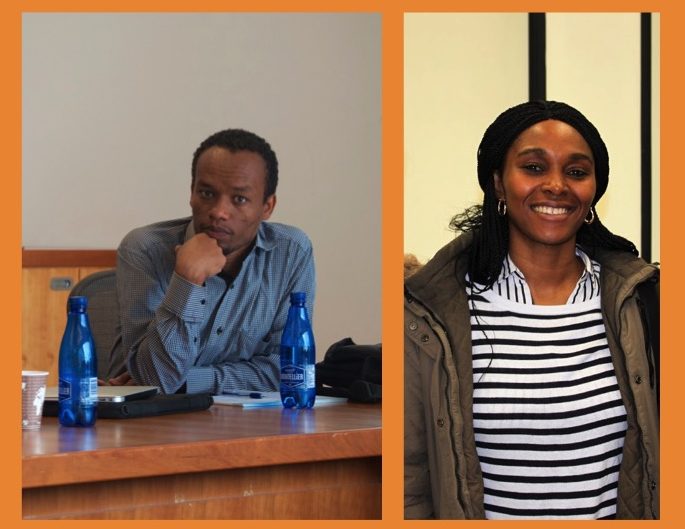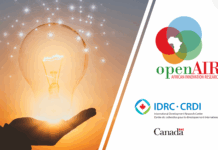This fall, two Open AIR New and Emerging Researchers Uchenna Ugwu and Sileshi Hirko successfully defended their PhD theses at the University of Ottawa.
Food Security and IP in West Africa
Uchenna Ugwu’s thesis on leveraging the multilateral patent regime to advance food security, states that social access, as well as economic and physical access, plays into this multifaceted concept of food security. As explained by Uchenna, food security is generally described as when all people, at all times, have access to sufficient safe and nutritious foods to meet individual preferences and dietary needs for an active and healthy life. As a broad concept, food security touches on health, economics, and social dynamics, and therefore it has also some interactions with intellectual property (IP). For example, food security includes the ability of a farmer to harvest and replant a seed. IP, however, is the ability to take possession of one’s ideas and decide how they can be used including restricting the use of certain genetic materials and seeds.
In West Africa, however, food security is less property- and technology-based but is created through the communal exchange of materials, sharing of processes, and traditional knowledge, in addition to the seeds themselves. This can lead to difficulties as anything that affects agriculture affects both the source of food and the source of income for the majority of people. Meanwhile, companies that invest in IP need to maximize profits and have to collect dividends from their innovations.
In her PhD thesis, Uchenna aims to understand the dimensions, challenges, and benefits of regional agreements and policies on IP and food security in West Africa. She proposes to design a regional policy framework for guiding future IP policies to achieve West Africa’s food security objectives through doctrinal analysis. Uchenna, therefore, seeks to explore whether the IP-related provisions, principles, and legal norms contained in the provisions of the economic partnership agreement support or hinder the obtainment of food security in West Africa. She suggests that IP rights may be adapted as instruments to achieve food security objectives. There is no one-size-fits-all model, however. IP would have to be used differently in each sector and area to be effective. This differential approach is not contradictory to the international IP regime since, more than ever before, IP holders are concerned with things like development and food security.
To read more about Uchenna’s research, read her blog on traditional knowledge and farming here.
Copyright and Access to Learning Materials in Ethiopia
Sileshi Hirko’s thesis explores the interplay between policies and laws related to copyright and policies and laws related to the human right to education and their contributions to sustainable human development in Ethiopia.
Ethiopia is a country that has adopted laws for the protection of both copyright and human rights. Further, tertiary education is considered as one of the most important policy tools to promote a sustainable human development in Ethiopia. As quality tertiary education depends on adequate access to learning materials, there is a high demand for such learning materials in the country. Nevertheless, it is not clear to what extent Ethiopia has adopted a strategic, development-oriented approach to align copyright laws with tertiary education objectives and how these relate to sustainable human development.
As Sileshi’s explained in his defence, despite the increasing demand for tertiary education in Ethiopia, there is lack of access to copyrighted learning materials at Ethiopian higher educational institutions. In this way, copyright is one of the major factors that restricts access to learning materials, most of which are produced outside of Ethiopia. For this reason, Sileshi intends to explore the various flexibilities in copyright laws and how they can be incorporated into the national legal system in a manner that facilitates access to learning materials at tertiary education institutions. By taking a human rights-based, development-oriented approach, he will analyze how copyright laws and tertiary education objectives interact and can possibly align to help achieve sustainable human development in Ethiopia.










